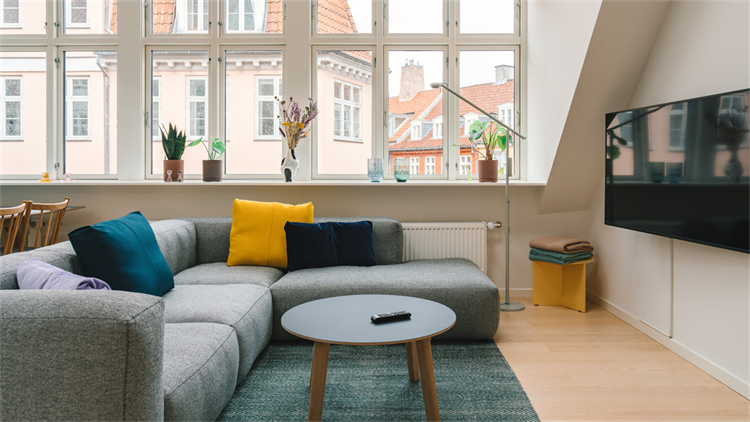Danish co-living startup raises €6m to continue expansion in European markets
- In News
- 13:08, 11 november 2020
- 1343 Views

Danish PropTech startup LifeX has announced a new funding round of €6 mln to strengthen its presence in existing and new markets, fuel product development, and accelerate the company’s vision to ‘make anyone feel at home, anywhere in the world’.
The latest funding round was organised through Founders, a Copenhagen-based startup studio together with Cherry Ventures, a Berlin-based venture capital fund, with the goal of strengthening their partnership with the PropTech and co-living company.
Founded in 2017 by Sune Theodorsen and Ritu Jain, LifeX helps young professionals overcome the many challenges of finding housing and growing a social network. The company achieves this through a family-style approach to co-living, featuring shared living spaces filled with high-quality designer furniture, allowing individuals to thrive in a hassle-free environment by removing common points of conflict such as chores, house maintenance and bills.
LifeX also helps young professionals grow their social networks through community-fostering initiatives such as events and networking opportunities with its embedded members from over 50 different countries.
Despite the hospitality industry being hit extremely hard during the Covid-19 crisis, the co-living operator has continued to find success thanks to its solid business model and thriving community, earning the trust of investors to further strengthen their relationship with LifeX.
CEO Sune Theodorsen said, ‘We have been focusing on our community of members, which is the essence of LifeX. It was really important for us to remain approachable and reactive during these unprecedented times. We were due to release a new feature in our LifeX app, which aimed to enhance communication with our members. We identified the need to accelerate development of this feature and released it during the lockdown period, allowing us to maintain a closer line of communication with our members.’
Additionally, one of LifeX’s key purposes is to fight loneliness. The COVID-19 crisis has supported this idea by showing that its members experienced challenges such as isolation brought on by lockdowns to a lesser extent than people in traditional housing models. ‘What we noticed during the crisis was that our members were very appreciative of not having to face this alone. They enjoyed spending time together, bonding and having their housemates as a support system to rely on. With millennials being coined the ‘loneliest generation’, we hope to provide our members with a space where they can exchange, develop friendships and blossom as individuals.’
As a result, Theodorsen remains very optimistic in regards to the future of co-living: ‘I think what we do has only become more relevant. Co-living is not just a trend, it is here to stay and will continue to grow. With the way we work shifting to a more remote model, the time and care we spend curating our living spaces and community has become a great asset for us as well as increasingly attractive for our members.’
With this latest capital injection, LifeX has now received close to €15 mln of funding overall.






